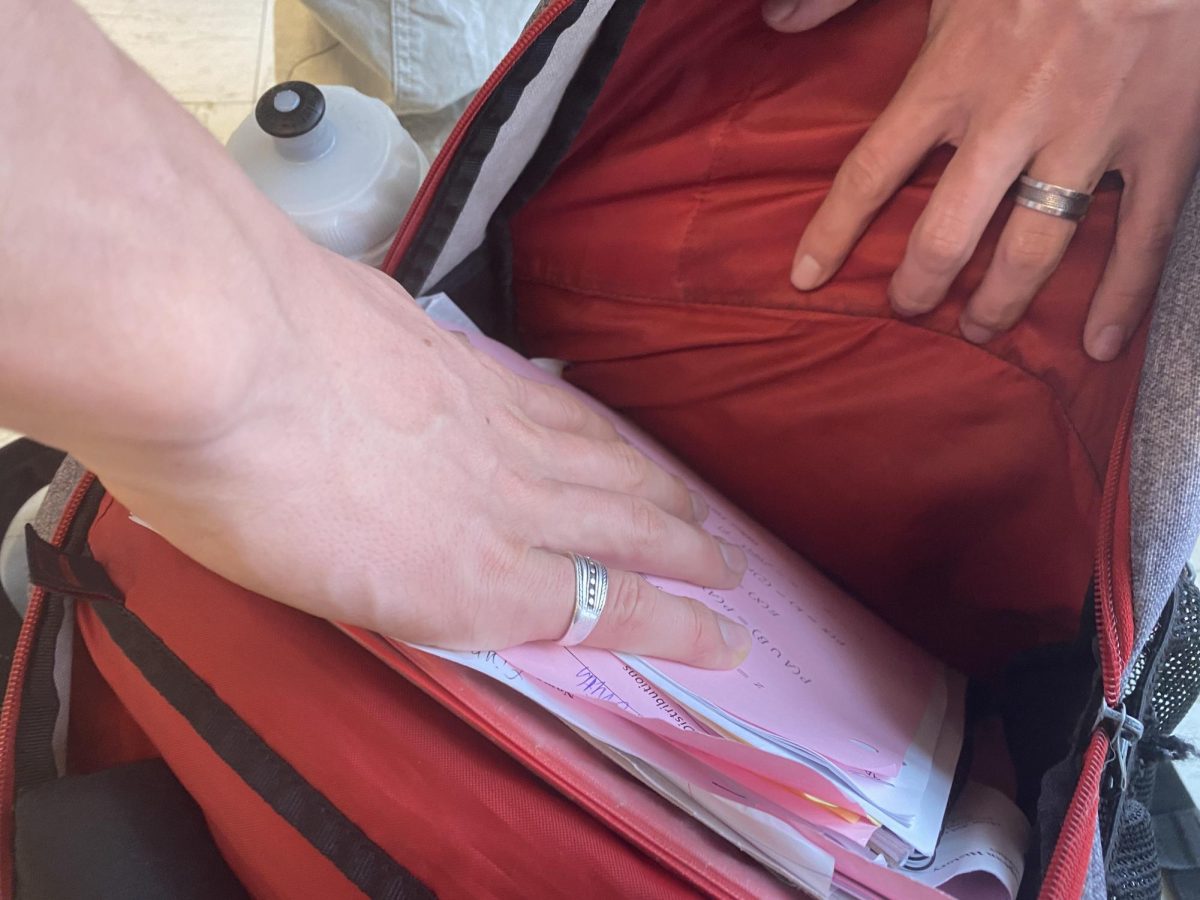As we roll into a new semester, it may be time to take a critical look at school policies from the previous one, namely the policy on student searches. These searches became relatively prominent in the back part of last semester, and the searched groups ranged from a few people in a bathroom to entire classes. We’ve taken a look at many of these searches and their circumstances, as well as examined laws, policies, and rulings in state and federal courts and have found that the nature of some of these searches is certainly questionable, both morally and legally.
Student searches in the state of Colorado are required to be backed by reasonable suspicion, which is essentially one tier under probable cause. Reasonable suspicion is defined as a “subjective assessment…based on specific, articulable facts and reasonable inferences drawn from those facts,” as stated by the Hester Law Group. Various court cases also tighten up on what is considered reasonable suspicion. In the decision of People vs D.F. Colorado courts concluded that “[s]tanding alone, an anonymous tip lacks the ‘indicia of reliability sufficient to establish reasonable suspicion,’” Meaning that anonymous Safe2Tell tips are not enough to search students. This alone puts many of the searches conducted at Boulder High into question.
With all this in mind, we can now look at the various reports we have received from students at Boulder High who have been searched. We’ll start with one student who was searched after a Safe2Tell tip reported him for being in possession of prohibited items. The student was found to not be in possession of said items, and the search was reportedly relatively painless; however, as we have already established, anonymous Safe2Tell reports are, at best, shaky grounds for a reasonable search.
Not everyone has had such easy experiences, however, with these searches. One student we spoke to reported having to wait over an hour in the office to be searched, missing an entire class period. Students have also been taken down to the office and searched simply for being in the bathroom at the wrong time.
When taking a look at BVSD’s search and seizure policy, it reads much like the state laws on the matter, and is in line with them. The BVSD website states that “Searches of the person of a student which require removal of clothing other than a coat, jacket, or equivalent exterior clothing shall not be conducted by school personnel.” While we haven’t heard of anyone having to remove clothing in this way, people have had to lift up their shirts during the searches. The policy also states that “…personal searches of a student shall be conducted in a private room by a person of the same sex as the student and witnessed by another person of the same sex as the student.” However, one student reported that, while a witness was present during her search, this witness was not of the same sex as the student, thus putting the nature of this search in contention with stated BVSD policies.
Another instance that was reported to us involved the search of a table group in a class. A student in this class was discovered to be in possession of marijuana as suggested by the noticeable smell, something which would fall under reasonable suspicion. The student in possession came forward and was upfront about possessing the substance, but the other students were searched even after this. This brings us to another feature of the legal definition for reasonable suspicion, and that is that beyond just the cause, the scope of the search must also be reasonable. In this case, everyone at a table group was searched after the possessor identified themself and turned themself in, one girl even had her Lactaid seized. This seems to fall outside of a reasonable scope; however we would not go so far as to say that this is illegal, as searching someone who smells like marijuana does fall under reasonable suspicion, and over-the-counter drugs/steroids can count as prohibited items if undisclosed and unapproved by school officials.
In summary, we did find individuals or groups who had, in some way, been searched in a manner that does not clearly follow existing laws or BVSD policy. Which brings the legality and ethical foundation of these searches into question. Should these searches continue? And should the administration be pressured to modify this controversial precedent?



